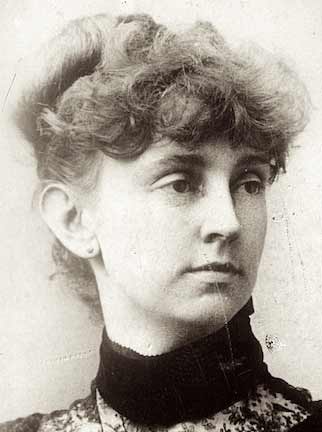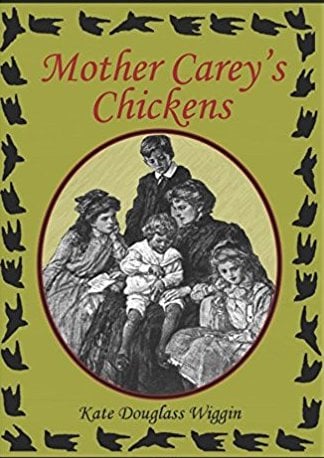Mother Carey’s Chickens by Kate Douglas Wiggin (1911)
By Taylor Jasmine | On April 17, 2015 | Updated September 21, 2022 | Comments (0)

From the original review of Mother Carey’s Chickens by Kate Douglas Wiggin in the New York Times, September, 1911: Here is a tale of motherhood and childhood which will come close to the hearts of the multitudinous “common people” who are the salt and salvation of the American nation.
It is Mother Carey’s Chickens by Kate Douglas Wiggin. There is not a lord nor a villain in the story, nor a millionaire, nor a beggar. There is no study of society, nor any intrigues nor immorality.
It requires an artist to redeem such narrative from the hopeless commonplace, and happily in this case the artist does not fall below herself. Possibly she even surpasses herself.
Nancy is good company for Rebecca of Sunnybrook Farm fame, and her mother is a fresh character destined to a favorable place in the hearts of all who know her. The nation needs millions of such mothers, and has multitudes of them.
. . . . . . . . . . .

Learn more about Kate Douglas Wiggin
. . . . . . . . . . .
It is the exception which does not have the aspirations and affections and the maternal courage of Mother Carey, but it would be rank flattery to say that all rise to the occasion as she did.
She triumphs over circumstances, not by any extraordinary talents, but by her strength of character. We cannot all be geniuses, but most of us can, if we will, be good. At least we can make more of a success at trying to be good than at trying to be intellectual marvels.
. . . . . . . . . . .
You might also like: Mother Carey’s Chickens (1938 film)
. . . . . . . . . . .
The author is a moralist as well a novelist
It may be that none of these things occurred to the moralist — for she is as much this as a novelist — but in that case the wonder grows how she could have produced a tale at once so moving and so improving, and so well adapted to offer a remedy for “unrest” and “discontent” through effort and thrift rather than through some nostrum designed to reform the individual by the reform of society.
Nobody will be the worse for making the acquaintance of the characters in this novel, and the hope may be hazarded that it may be read by as many as possible for the good that the reading will do, not alone to the readers, but to all who come within the reach of their activities in accordance with the teaching of a sermon without a prosy word in it, nor a hint of any preachment except as the readers deduce one for themselves.
. . . . . . . . . . .

. . . . . . . . . . .

Leave a Reply